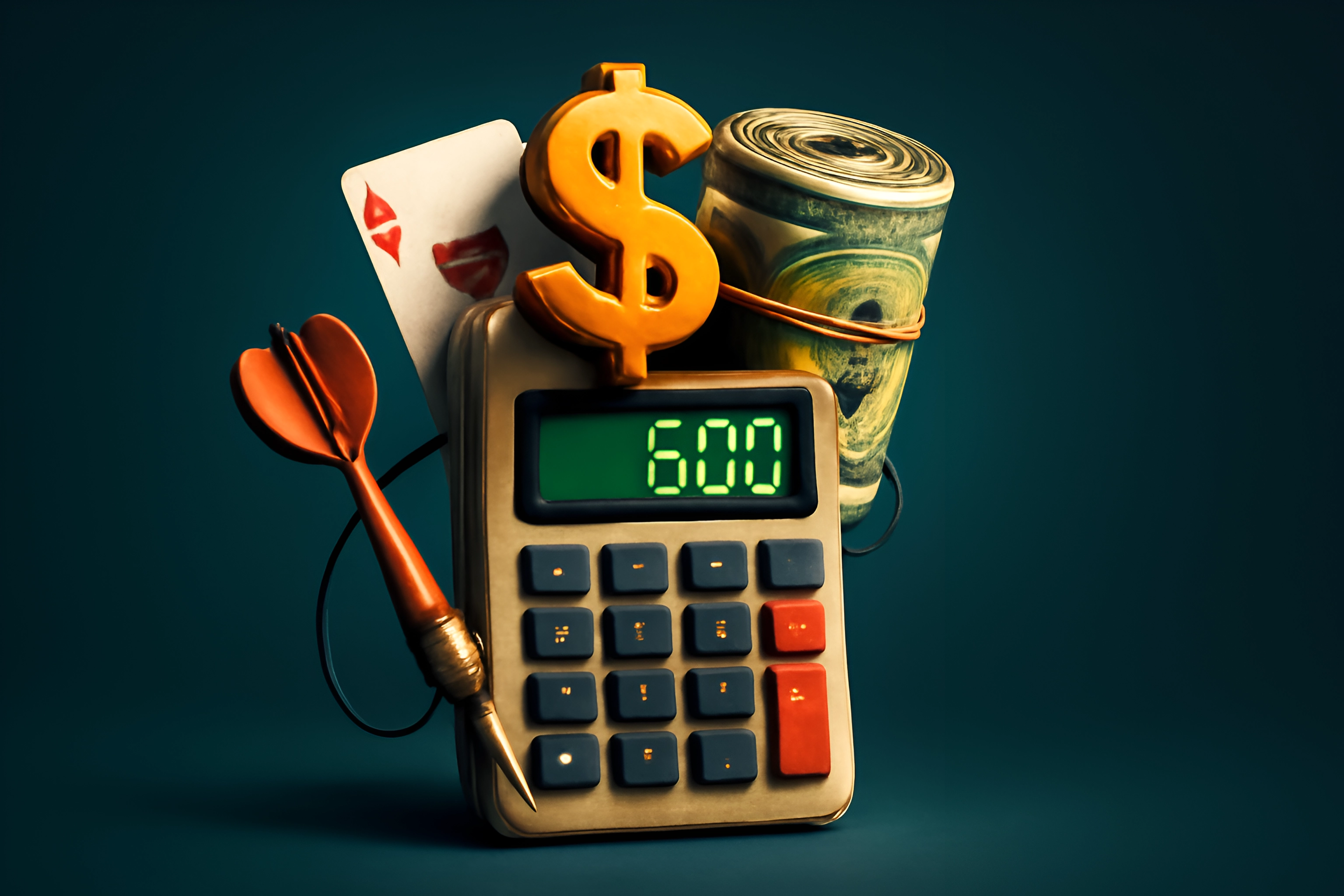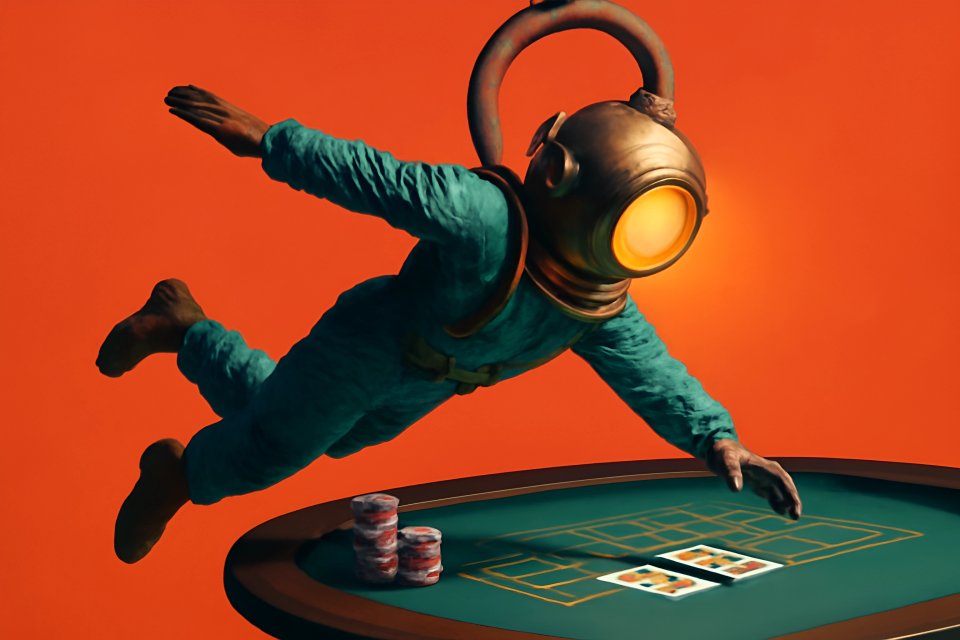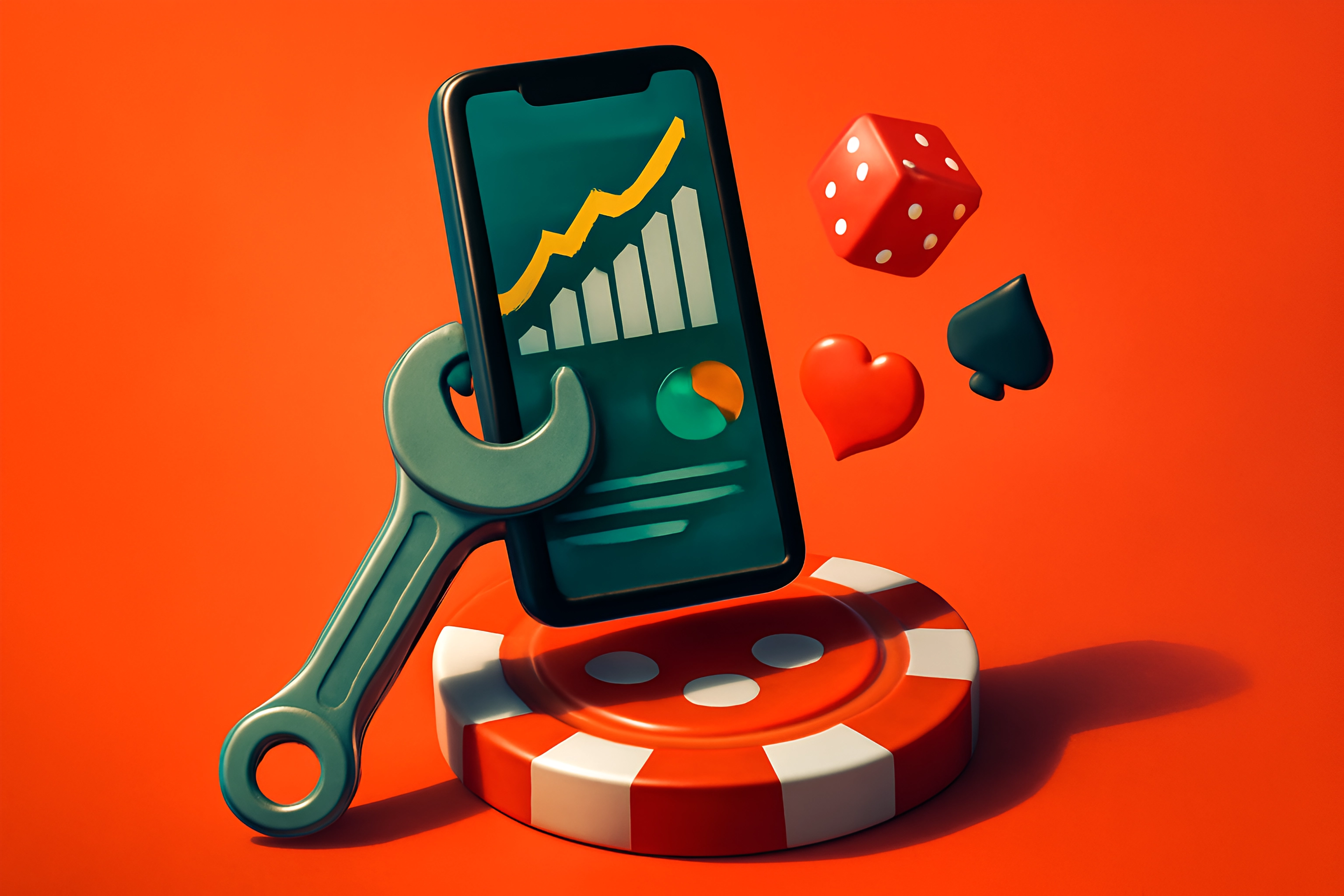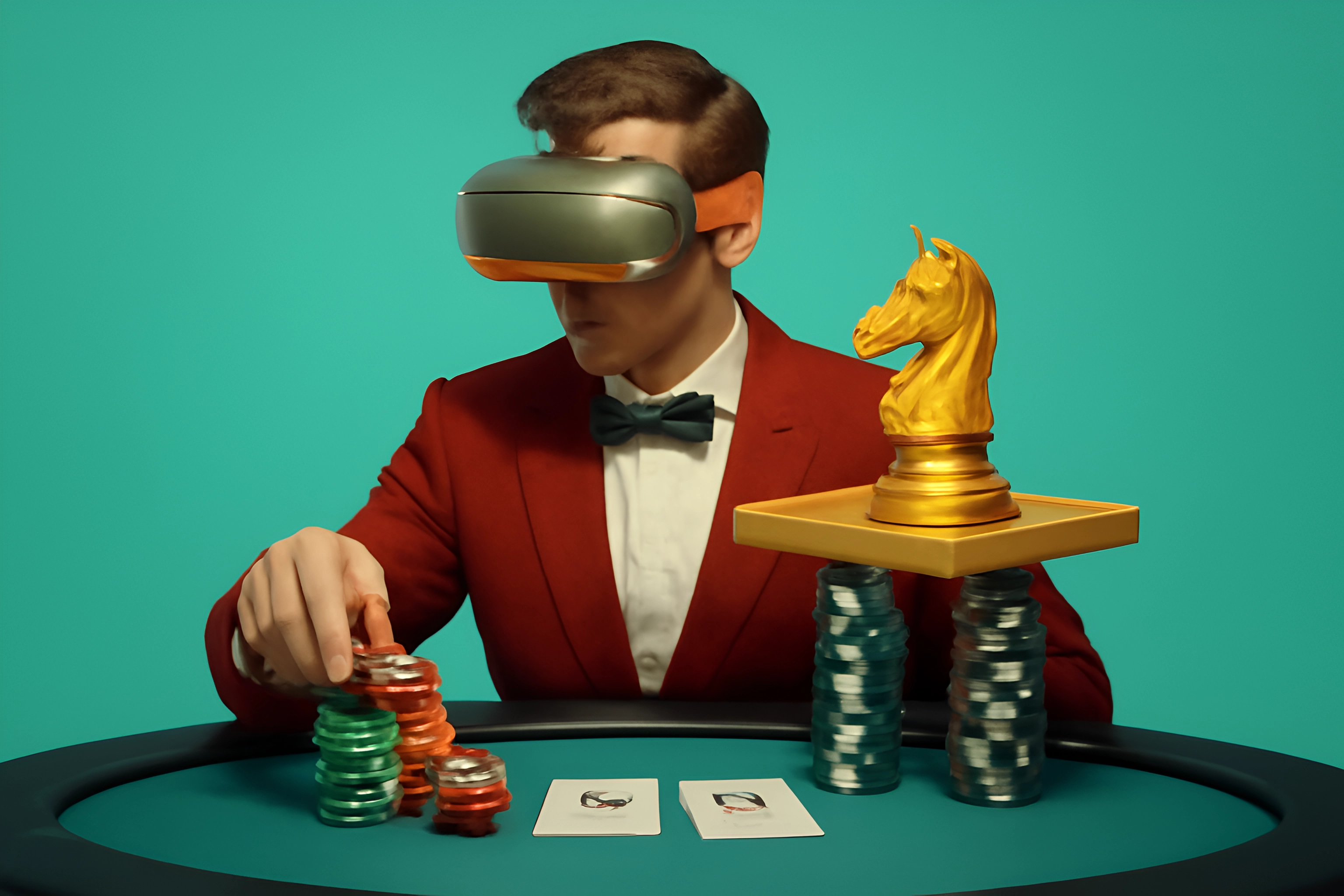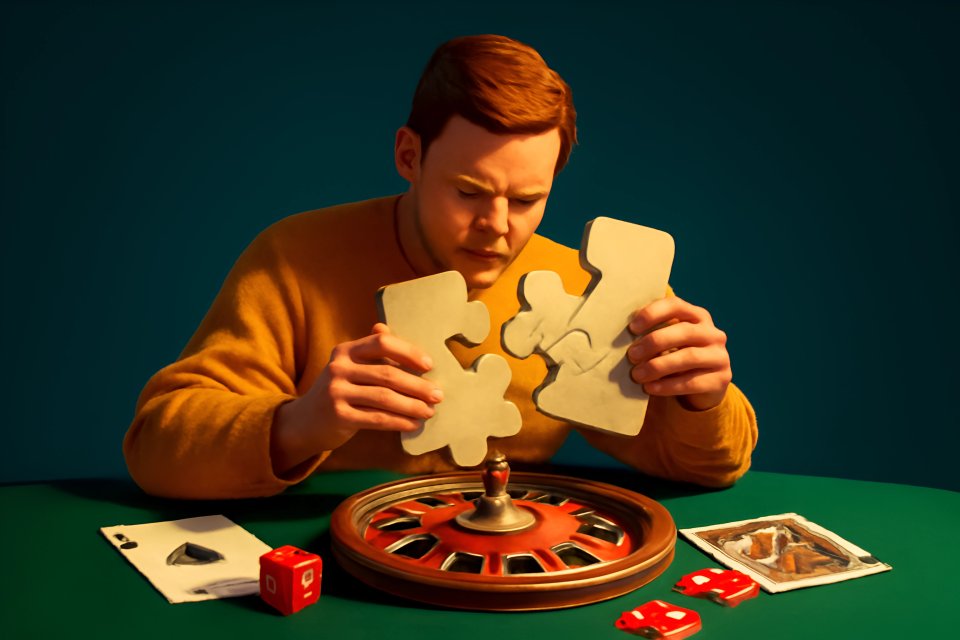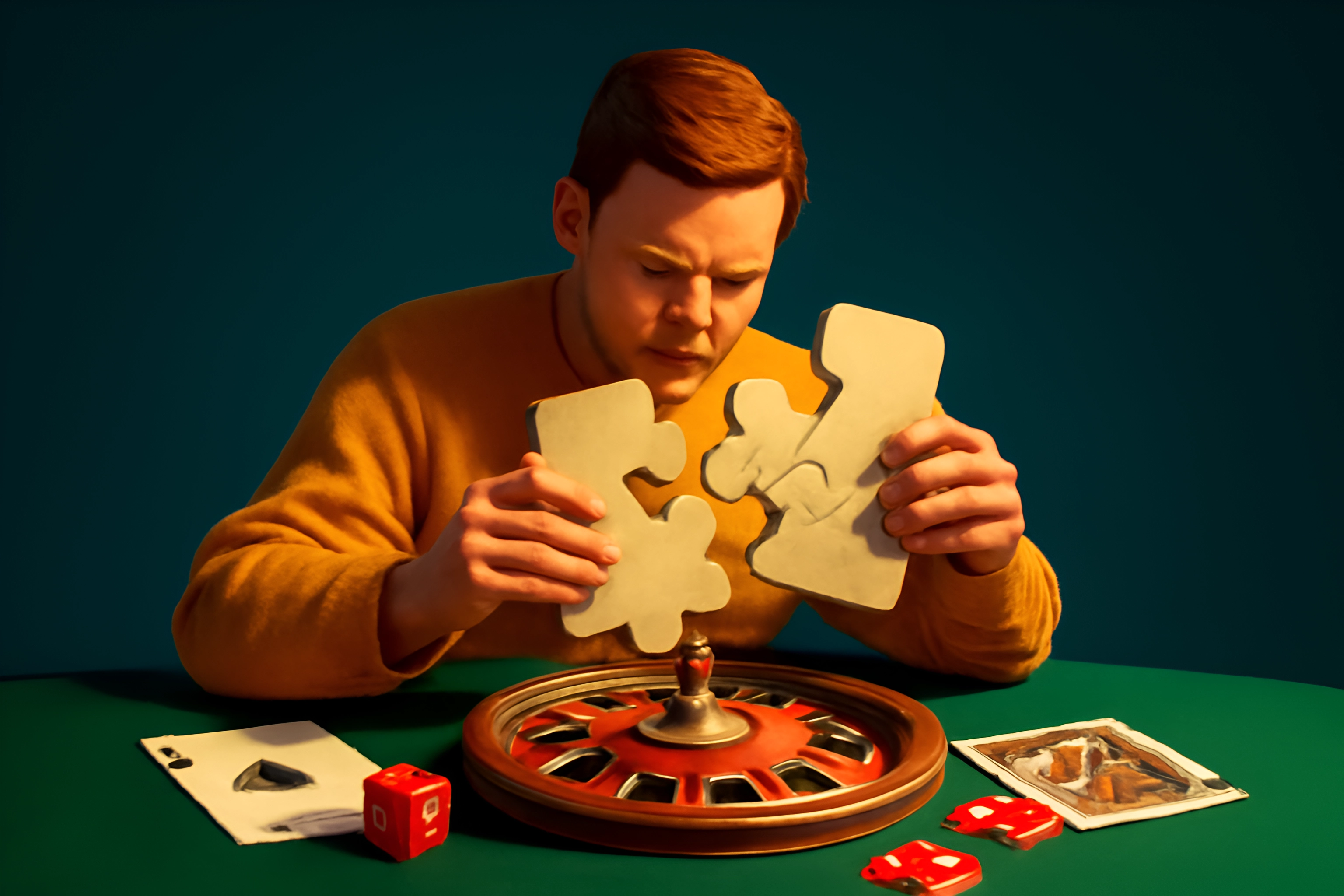
The casino floor. A symphony of shuffling cards, the hypnotic spin of the roulette wheel, the murmur of anticipation. It’s a world that has captivated hearts and minds for generations, promising thrills, excitement, and the tantalizing prospect of a win. But what if you could step up to those iconic green felt tables not just with hope, but with a genuine understanding of how to play smarter? This isn't about chasing guaranteed wins – those are a myth. This is about empowering yourself with knowledge, demystifying "table game strategies," and truly "optimizing play in table games" for a more rewarding and enjoyable experience. At The Casino Nest, we believe that an informed player is a more confident, and ultimately, a more satisfied player.
Are you ready to transform your approach from hopeful guessing to calculated confidence? Let's dive deep into the strategies that can give you a fighting chance and elevate your game.
Foundational Principles for All Table Game Players
Before you even think about specific tactics for Blackjack or Roulette, there are universal truths that every aspiring table game enthusiast must embrace. These aren't just tips; they are the bedrock upon which all successful casino play is built. Ignore them at your peril, because understanding these fundamentals is your first, and most crucial, step towards playing with intelligence and control.
Understanding House Edge
Ever wonder why the casino always seems to have the upper hand in the long run? That, my friend, is the house edge. It’s the built-in mathematical advantage the casino holds in any game, a percentage of each bet that, over time, it expects to keep. For instance, as detailed by gambling authorities like Wizard of Odds and Outplayed.com, Blackjack's edge can vary wildly from a mere 0.19% with optimal rules and play, to over 2% with poor strategy or unfavorable rules. Roulette's edge is more fixed: 2.7% for European wheels and a steeper 5.26% for American versions, a fact highlighted by Casino.org's explanation of the roulette table.
The goal of any sound strategy isn't to magically eliminate this edge – that's impossible. Instead, smart "table game strategies" aim to minimize it, to shave off those percentage points and bring the game as close to a level playing field as possible. Knowing this empowers you to make choices that genuinely impact your long-term prospects.
Bankroll Management: Your First Winning Move
Listen closely: your most powerful weapon at the casino isn't a lucky charm or a gut feeling. It's disciplined bankroll management. Think of it as the financial blueprint for your casino adventure, ensuring you play within your means and protect yourself from devastating losses. Setting a budget before you even step foot in the casino (or log in online) is non-negotiable. This means deciding exactly how much you're willing to risk and, crucially, sticking to that amount no matter what.
Experts often suggest dividing your total gambling funds into session-specific allocations. For example, a common guideline is to have a session bankroll of 100 times your base betting unit. High rollers might adopt what TNTNJ.com calls the "30-40 rule," limiting bets to 0.3%–0.4% of their total bankroll per hand. Furthermore, setting win goals and loss limits for each session – say, stopping if you're up by 50% or down by a certain amount – can prevent emotional decisions and help you walk away a winner, or at least with your dignity and most of your funds intact. As NXT Bets points out, session limits often outperform daily caps for loss-tracking precision, preventing fragmented play from obscuring cumulative depletion.
Choosing the Right Game & Table
Not all casino games, or even tables of the same game, are created equal. The subtle variations in rules can have a significant impact on that all-important house edge and, consequently, on your chances. Take Roulette: the difference between a European wheel (single zero) and an American wheel (double zero) is stark. Wizard of Odds' guide to roulette basics clearly shows the European version offers far better odds for the player, reducing the house edge from 5.26% down to 2.7%.
Similarly, in Blackjack, the number of decks used, whether the dealer hits or stands on a Soft 17, and rules about doubling down or splitting pairs can dramatically alter the game. Single-deck Blackjack with favorable rules (like the dealer standing on Soft 17 and 3:2 payouts for Blackjack) can offer a house edge as low as 0.19%, a significant improvement over multi-deck games with less player-friendly conditions. Before you sit down, take a moment to understand the specific rules at that table; it’s a small investment of time that can pay big dividends in "optimizing play in table games."
Optimizing Your Blackjack Play: Strategy Beyond "21"
Blackjack. It’s the quintessential casino duel: you versus the dealer. The goal seems simple – get closer to 21 than the dealer without busting. But beneath this straightforward objective lies a rich tapestry of mathematical probabilities and strategic decisions. Mastering these can transform Blackjack from a simple guessing game into a sophisticated challenge where skill truly matters.
Blackjack Basics Revisited (Quick Recap for Newcomers)
Before we delve into the nitty-gritty, let's ensure we're all on the same page. The objective in Blackjack is to beat the dealer's hand without your card total exceeding 21. Numbered cards are worth their face value, face cards (King, Queen, Jack) are worth 10, and Aces can be either 1 or 11, whichever benefits your hand more. As a player, you have several actions: Hit (take another card), Stand (keep your current hand), Double Down (double your bet and receive one more card), Split (if you have two cards of the same value, you can split them into two separate hands), and sometimes Surrender (forfeit half your bet and end your hand).
Understanding these basic actions is fundamental, but true optimization comes from knowing when to deploy each one. This isn't about gut feelings; it's about understanding the probabilities associated with your hand versus the dealer's visible card. Wizard of Odds offers excellent video resources on Blackjack strategy that can help solidify these concepts.
The Cornerstone: Basic Blackjack Strategy
This is where the real power lies for the aspiring Blackjack player: Basic Blackjack Strategy. It's a mathematically derived set of optimal decisions for every possible hand combination you could hold against any dealer upcard. Think of it as a complete playbook, meticulously calculated to minimize the house edge, often reducing it to around 0.5% or even lower in games with favorable rules. This isn't a suggestion; it's the absolute foundation of smart Blackjack play.
Strategy charts, readily available online (and sometimes even provided by casinos), codify these decisions. Key principles include always hitting hard totals of 11 or less, standing on hard totals of 17 or more, and knowing precisely when to double down (often on totals of 9, 10, or 11, depending on the dealer's upcard). For instance, basic strategy dictates you should always split Aces and 8s, but never split 10s or 5s. Ignoring these "blackjack strategy tips" is like willingly giving the casino a bigger advantage.
Here's a highly simplified example of what a basic strategy decision point might look like:
| Your Hand | Dealer's Upcard | Decision |
|---|---|---|
| Hard 16 | 7 | Hit |
| Hard 12 | 4 | Stand |
| Soft 18 (Ace, 7) | 3 | Double |
| Pair of 8s | Any | Split |
Note: This is a very small sample. Full basic strategy charts cover all possibilities.
Advanced Blackjack Considerations
Once you've mastered Basic Strategy, you might become curious about more advanced concepts. Specific table rules can indeed influence optimal play. For example, if the dealer hits on a Soft 17 (a hand totaling 17 with an Ace counted as 11), this slightly increases the house edge (by about 0.22% according to Wizard of Odds) and requires minor adjustments to your strategy, such as being more aggressive with doubling on soft hands. The option to Surrender (forfeiting half your bet before playing out your hand) can also be advantageous in certain situations, potentially reducing loss expectation by 0.6% against a dealer's 10 or Ace.
Then there's the almost mythical concept of card counting. While legal, it's incredibly difficult to master and execute effectively, especially in modern casinos with multiple decks and frequent shuffling. Card counting involves tracking the ratio of high to low cards remaining in the deck to identify when the odds shift in the player's favor, allowing for strategic bet sizing. However, as Wizard of Odds explains regarding the Hi-Lo count, it requires immense practice and concentration, and casinos are adept at spotting and deterring counters. For most players, focusing on perfect Basic Strategy is far more practical and beneficial.
Common Blackjack Mistakes to Avoid
It's heartbreaking to see players make easily avoidable errors that inflate the house edge and drain their bankroll. One of the most common? Ignoring Basic Strategy. This single mistake can increase the house edge by 1.5% to 2% or more! Another frequent blunder is taking Insurance. When the dealer shows an Ace, you'll be offered insurance, which is essentially a side bet that the dealer has Blackjack. This bet typically carries a hefty house edge of around 7.4% and is almost always a losing proposition in the long run.
Other pitfalls include mimicking the dealer's play (dealers follow fixed rules, not optimal strategy) or making emotional decisions like splitting 10s (why break up a strong hand of 20?) or chasing losses. As Winstar's blog points out, these common blackjack mistakes can be costly. Stick to the math, stay disciplined, and you'll avoid these common traps.
Navigating the Roulette Wheel: Strategies for a Game of Chance
The Roulette wheel: an iconic symbol of casino glamour and chance. Unlike Blackjack, where player decisions directly impact the outcome of each hand, Roulette is fundamentally a game of independent trials. The ball will land where it lands. But does that mean strategy has no place? Not entirely. While you can't change the odds of a specific number coming up, you can strategize how you bet, which version of Roulette you play, and how you manage your money.
Understanding Roulette: Odds, Payouts, and Variations
First, let's get a handle on the landscape. Roulette bets are broadly categorized into Inside Bets (bets on specific numbers or small groups of numbers, like a Straight bet on a single number paying 35:1) and Outside Bets (bets on larger categories like Red/Black, Odd/Even, or Dozens, which offer lower payouts but higher probabilities of winning). For example, a bet on Red or Black pays 1:1 and has nearly a 50% chance of winning (slightly less due to the zero).
The most crucial distinction, however, is between European Roulette (with a single zero) and American Roulette (with a single zero and a double zero). That extra double zero on the American wheel significantly increases the house edge. As Casino.org explains, the house edge on an American wheel is 5.26%, while on a European wheel, it's a much more favorable 2.7%. If you have the choice, always opt for European Roulette. Some French Roulette tables even offer rules like "En Prison" or "La Partage," which can further reduce the house edge on even-money bets to as low as 1.35% if the ball lands on zero.
Popular Roulette Betting Systems: Do They Work?
Ah, the allure of the "roulette betting system." You've probably heard of them: Martingale, Paroli, D'Alembert, Fibonacci. These systems dictate how you adjust your bet amounts based on previous wins or losses. For example, the Martingale system involves doubling your bet after every loss, with the idea that a single win will recover all previous losses plus one unit of profit. The Reverse Martingale (Paroli system) does the opposite, doubling your bet after a win to capitalize on streaks. The D'Alembert system is less aggressive, increasing your bet by one unit after a loss and decreasing it by one unit after a win.
Do these systems work to beat the house edge? The hard truth, as emphasized by resources like Wizard of Odds' analysis of betting systems, is no. No betting system can alter the fundamental odds of the game or overcome the house edge in a game of independent trials like Roulette. What they can do is help manage your betting patterns, potentially structure your play sessions, and influence short-term volatility. The Martingale, for instance, can lead to rapid bankroll depletion due to table limits and the risk of long losing streaks (a 7-loss streak, with a probability of about 1 in 128 for an even-money bet, can be catastrophic). Systems like Paroli are generally considered less risky to your overall bankroll.
Practical Roulette Optimization Tips
So, if betting systems don't beat the house, what can you do to optimize your Roulette play? First, as mentioned, always choose European Roulette over American Roulette. Second, consider focusing on outside bets (Red/Black, Odd/Even, High/Low). While the payouts are smaller (typically 1:1), your probability of winning each bet is significantly higher (around 48.6% on a European wheel). This can lead to longer play sessions and less bankroll volatility.
If you're playing French Roulette, look for tables with "En Prison" or "La Partage" rules, as these give you a chance to recover half your stake on even-money bets if the ball lands on zero. Beyond game selection, disciplined bankroll management is paramount. Set clear win goals and loss limits for each session and stick to them. Remember, Roulette is primarily for entertainment; enjoy the spin, but play responsibly. For those interested in more complex betting patterns, Wizard of Odds discusses sector bets which cover specific sections of the wheel.
Universal Tips for Optimizing Casino Table Games
Whether you're drawn to the strategic depths of Blackjack or the elegant chance of Roulette, some principles for "optimizing casino table games" apply across the board. These are the habits and mindsets that separate the casual, often frustrated, player from the informed, controlled, and ultimately more satisfied one. Think of these as your universal toolkit for navigating the casino environment with greater wisdom.
Practice Makes Progress: Utilize Free Play/Demo Modes
Want to get comfortable with Basic Blackjack Strategy without risking your hard-earned cash? Curious how a Roulette betting system feels in practice over a hundred spins? Free play or demo modes, widely available on online casino platforms, are your best friends. These tools allow you to experience the games, test strategies, and get a feel for the flow without any financial pressure. Black-Jack.com offers free play options that are perfect for honing your skills.
Think of it as your personal training ground. You can drill Basic Strategy decisions until they become second nature or see firsthand how quickly the Martingale system can escalate. The Casino Nest strongly advocates for spending significant time – perhaps 20+ hours – in demo modes before engaging in real-money play, especially if you're new to a game or a particular strategy. This practice builds not just skill, but also the confidence to make sound decisions when real stakes are involved.
Know When to Walk Away: Discipline is Key
This might be the single most important piece of advice, yet it's often the hardest to follow: know when to walk away. The casino environment is designed to keep you playing, but true optimization involves recognizing your limits – both for wins and losses. Setting a "win goal" (e.g., aiming to walk away if you're up by 30% of your session bankroll) and a "loss limit" (e.g., stopping if you've lost 50% of your session bankroll) before you start playing is crucial. This framework, as suggested by sources like TNTNJ.com for high rollers, helps prevent emotional decision-making.
"Tilt" – playing recklessly out of frustration after a series of losses – is a bankroll killer. Chasing losses rarely ends well. Discipline is your shield against these destructive patterns. Digital tools, like session timers or the daily loss limits discussed by NXT Bets, can help enforce these boundaries. Remember, the tables will always be there tomorrow.
Leveraging Casino Bonuses (Wisely)
Casino bonuses, like welcome offers or reload bonuses, can seem like free money, and they can indeed extend your playtime and give you more opportunities to apply your strategies. However, it's crucial to approach them with a clear understanding of the terms and conditions. The most important factor is the wagering requirement – the amount you must bet before you can withdraw any winnings derived from the bonus. For example, a 100% match bonus up to $200 with a 30x wagering requirement on the bonus means you'd need to wager $6,000 (30 x $200) before cashing out.
Furthermore, pay close attention to game contribution rates. As Casino.org's bonus guide often highlights, table games like Blackjack and Roulette frequently contribute much less to wagering requirements than slots – often only 10-20%. This means if Blackjack contributes 10%, that $6,000 wagering requirement effectively becomes $60,000 in Blackjack bets! Always read the fine print to ensure a bonus aligns with your preferred games and playing style. While bonuses can be valuable, they should complement your strategy, not dictate it unwisely. You might also find our insights on comparing crypto casinos versus traditional models useful, as bonus structures can vary.
The Casino Nest's Stance: Play Smarter, Not Harder
At The Casino Nest, our philosophy is simple: empower players with knowledge to play smarter, not harder. We believe that understanding the mechanics of games like Blackjack and Roulette, from the nuances of house edge to the practical application of strategy, is key to a more fulfilling casino experience. It’s about shifting the focus from chasing elusive jackpots to appreciating the intellectual challenge and maximizing your entertainment value.
Strategies are tools for informed decision-making. Mastering Basic Blackjack Strategy can demonstrably lower the house edge to under 0.5%, as Wizard of Odds explains regarding the house edge. Choosing European Roulette over its American counterpart instantly cuts the casino's advantage nearly in half. These aren't secrets; they are accessible facts that can significantly impact your play. Our goal is to demystify these concepts, making "optimizing casino table games" an achievable objective for every player. This approach aligns with understanding game mechanics, similar to how one might identify and exploit slot game volatility for a different kind of strategic play.
Responsible Gambling: The Foundation of Fun
Above all else, gambling should be a form of entertainment, not a financial strategy or a way to solve money problems. The foundation of enjoyable and sustainable casino play is responsible gambling. This means always playing within your means, setting firm limits on both the time and money you spend, and never betting more than you can comfortably afford to lose.
Recognizing the signs of problem gambling is crucial, both in yourself and others. These can include chasing losses, gambling with money meant for essentials, hiding your gambling habits, or feeling unable to stop. If you ever feel your gambling is becoming a problem, resources are available. Organizations like the National Council on Problem Gambling (NCPG) offer support and guidance. Many online casinos also provide tools like deposit limits, session reminders, and self-exclusion options to help you stay in control. Remember, the smartest play is always responsible play.
Conclusion: Take Your Seat with Confidence
You've journeyed with us through the intricate worlds of Blackjack and Roulette, uncovering the strategies that can truly elevate your game. From the foundational power of bankroll management and understanding house edge, to the specific tactics of Basic Blackjack Strategy and savvy Roulette bet selection, you're now armed with knowledge. This isn't about guaranteeing wins – the casino always maintains an edge. It's about "optimizing play in table games," making informed decisions, minimizing losses, and maximizing your enjoyment and confidence at the tables.
The next time you approach the green felt, you can do so not with trepidation, but with a clear plan and the assurance that you're playing the best game you possibly can. Apply these insights, practice diligently, and most importantly, play responsibly. The thrill of the casino is amplified when you play smart.

